Inventory of relevant SOGIESC case law and pending cases before the ECtHR and CJEU 2025
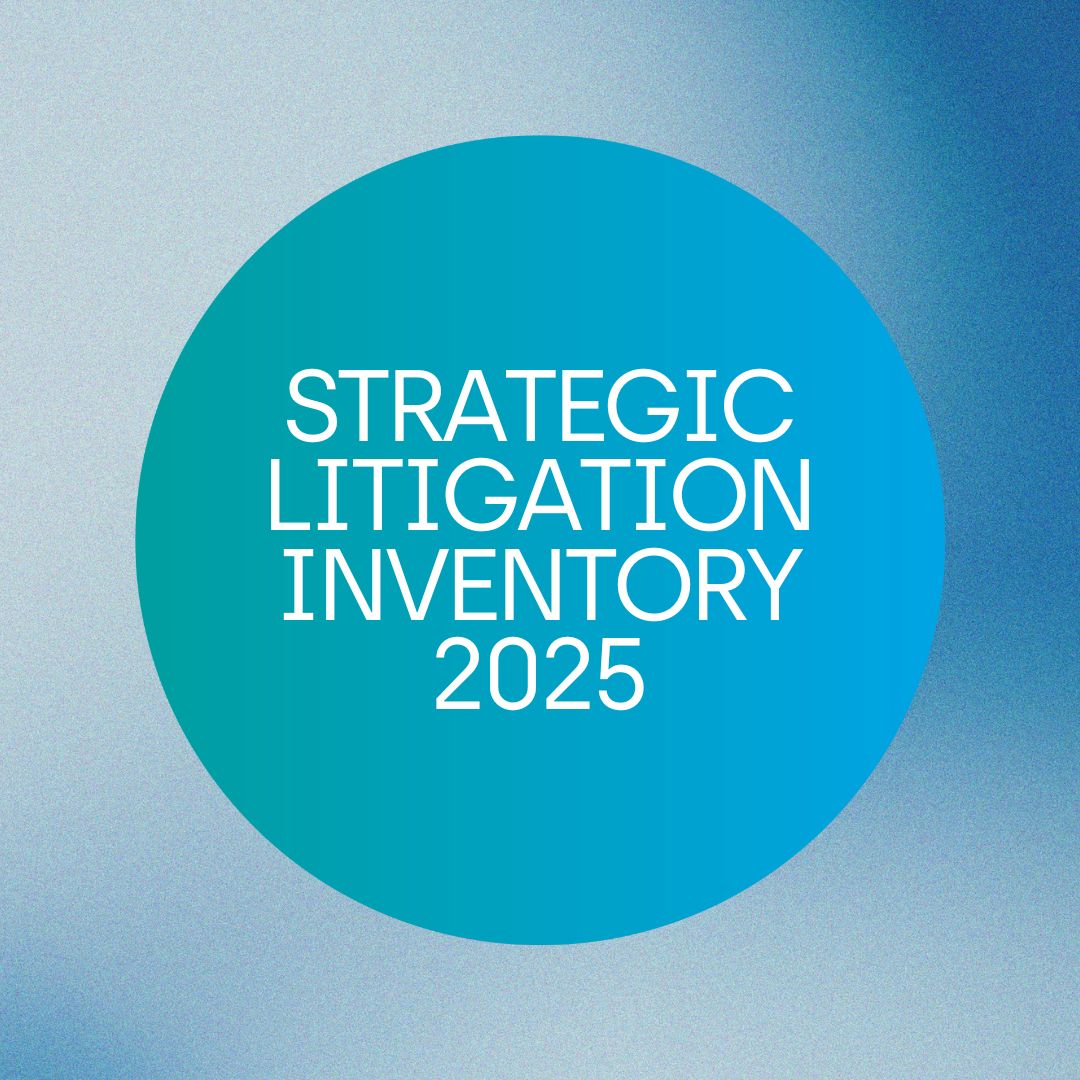
In order to focus our strategic litigation efforts across Europe to fully protect and advance LGBTI rights, with this inventory ILGA-Europe wants to support members and partners across the region to identify trends and gaps in protection at the European level, which can commonly be tackled through litigation. The inventory can further strengthen cooperation and help guide our work and efforts by others in bringing forward and supporting strategic cases.
This inventory and continuous assessment of the European landscape informs ILGA-Europe’s ongoing engagement in strategic litigation through identification and support of strategic opportunities.
This inventory covers relevant SOGIESC cases from 2010 up until December 2024.
Joint statement welcoming EU’s top court judgment to correct a trans man’s gender identity data in national registry
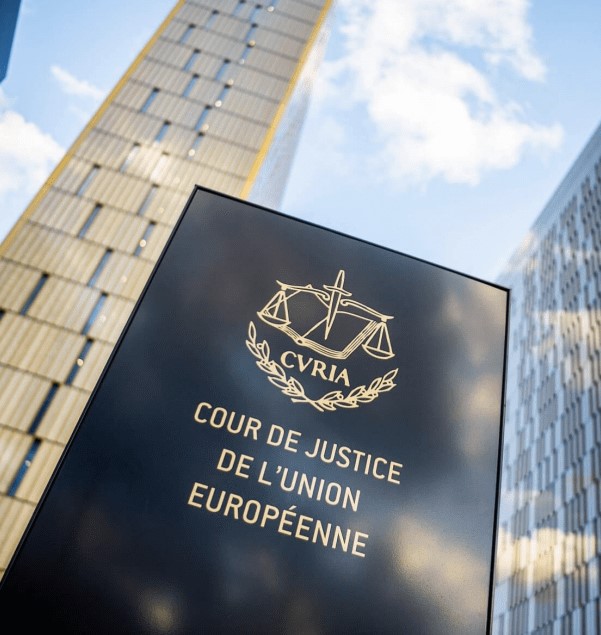
Today, the European Court of Justice (CJEU) issued a judgment in the case of Deldits (C-247/23), stating that national authorities responsible for keeping public registers (such as asylum registers) should correct data on gender identity when it is inaccurately recorded. This decision carries significant implications for advancing human rights protections in the EU, at a time when trans people and human rights in general are under massive attack.
Background
A trans refugee in Hungary seeks legal gender recognition
This case concerns an applicant who was granted refugee status in Hungary based on a well-founded fear of persecution in his country of origin because of his gender identity. The applicant requested the correction of his gender marker and name on the national asylum registry (as it reflected his name and sex at birth) under Article 16 of the EU’s General Data Protection Regulation (GDPR) on the basis that the data was inaccurate.
A legal paradox: Granted asylum but denied recognition
Despite the Hungarian authorities granting the applicant refugee status on this ground, he found himself in a paradox: his gender marker was registered incorrectly, and he could not correct it as there is no legal framework regulating the conditions for legal gender recognition (LGR) in the country.
Hungary’s ban on legal gender recognition
This case is a pivotal moment in the ongoing battle for the rights of trans people in Hungary, which has banned LGR for citizens in 2020, whilst refugees never had access to LGR. Moreover, Hungarian authorities requested proof of surgery as a precondition to change the applicant’s gender marker – a practice that the European Court of Human Rights has declared to be in violation of the right to respect for private and family life as protected by Article 8 of the Convention since 2017.
GDPR and human rights
The case raised several important questions for the CJEU: whether the GDPR mandates the correction of gender markers in national registries upon request. If so, does this request require evidence? If so, does it need to include proof of surgical intervention?
CJEU ruling strengthens trans rights and data accuracy rules
Today’s CJEU ruling addresses these questions, and is very favourable. It confirms that the right to rectification under Article 16 GDPR, taken in conjunction with the principle of data accuracy under Article 5(1)(d) GDPR, require authorities, without undue delay, to correct personal data concerning gender identity which is held in public registers when such data is inaccurate.
Importantly, the Court stated that if the purpose of collecting personal data is to identify the individual, the data should refer to the person’s lived gender identity, and not the identity assigned to them at birth. In that respect, the Court underlined that a Member State cannot invoke the absence of a domestic procedure for LGR to limit the exercise of the right to rectification under GDPR.
Secondly, the Court clarified that a person may need to provide reasonable proof to correct inaccurate data, but Member States cannot require proof of ‘gender reassignment surgery’ “under any circumstances”. The Court stated that such a requirement goes against the right to personal integrity (Article 3) and the right to privacy (Article 7) of the Charter of Fundamental Rights.
The Hungarian authorities must now allow for a change of gender marker in the Asylum Registry and all other national registries. However, instead of patchwork procedures by each data controlling entity in the country, the Hungarian government needs to urgently create legal certainty and set up a legal framework for quick, transparent and accessible procedure for LGR, where individuals can adapt their documents to match with their gender identity. The European Court of Human Rights already found that Hungary violates the European Convention on Human Rights for failing to allow such procedure (R.K. v. Hungary, 2023) including for trans refugees (Rana v Hungary, 2020).
The CJEU ruling is also binding upon national authorities keeping a public register across all EU Member States.
Reactions
TGEU Expert Advisor, Richard Köhler, comments: “Trans people deserve accurate personal data—full stop. Today’s Court ruling sends a clear message: while Member States control legal gender recognition processes, they must respect EU law. Evidence can be requested, but surgical proof? Absolutely forbidden.
This isn’t just about refugees—it’s also about asylum seekers and citizens. Where public records are kept to identify people, Member States need to recognise that a person’s real identity is what matters, not labels given at birth. The Court couldn’t be clearer: surgery requirements and forced sterilisation violate EU data protection law. Now, Member States must take action. No more delays. No more excuses. The message is simple: recognise people’s identities without invasive demands. The EU Commission must support Member States with implementation and take decisive action against those who continue to deny trans people their fundamental rights.“
ILGA-Europe Advocacy Director, Katrin Hugendubel, said: “This judgment is a significant step forward for the rights of trans people, including refugees, in the EU – especially in Member States without any legal framework for LGR. At a time when the rights of trans and LGBTI people in general are under constant threat, we call on Member States to implement this ruling by ensuring that their frameworks for collecting and storing personal data are GDPR and fundamental rights compliant. We also call on the EU Commission to actively monitor the implementation of this judgment and to encourage Member States to bring their frameworks for LGR in line with international human rights and EU law standards.”
According to Gábor Győző, the attorney representing the applicant in the proceedings on behalf of Háttér Society and the Hungarian Helsinki Committee, “it is very important and welcomed that the Court not only addressed the specifics of the case, but also assessed the Hungarian legal framework and the protection of the rights of trans people in a broader context. Moreover, this decision also serves as a guideline for all other Member States on this issue.”
“Trans people have been subject to constant governmental harassment in recent years. The judgment is a ray of hope that they cannot be deprived of their rights and denied their existence,” added Eszter Polgári, Director of the Legal Program of Háttér Society.
Joint calls to action
We call on EU governments to adhere to this CJEU ruling and proactively check their national procedures for a GDPR and European human rights compliant framework that allows individuals to quickly, transparently and in an accessible way update gendered data that is held on them. As EU data protection rules apply to anyone in the EU, they also need to ensure data of asylum seekers alongside refugees can be easily updated to reflect a person’s gender identity.
We call on the EU Commission to monitor the implementation of the Deldits case into national case law and adherence of the national authorities to the final decision. Failure in compliance needs to lead to infringement procedures. National Data Protection Authorities (DPAs) should equally monitor implementation and issue fines for non-compliant data controllers.
For a uniform understanding and application across the EU on both the Deldits and Mousse CJEU case law, we call on the Commission to provide practical guidance and the possibility to exchange for Member States and data controllers on implementation.
As EU data protection rules also apply to private actors, any organisation collecting, storing, or processing personal data on names and gender markers needs to check their processes for allowing correction of the data that they hold.
We urge EU institutions and Member States to ensure trans people have access to quick, transparent and accessible paths to LGR.
Congratulations to everyone involved for this incredible victory. Your efforts and dedication will make a huge impact on trans lives across the EU.
ILGA-Europe and TGEU provided support in the CJEU procedure to Háttér Society, which represented the applicant together with the Hungarian Helsinki Committee in this case.
Context
Today’s judgement comes on the heels of a groundbreaking data protection case strengthening the rights of non-binary people, Mousse (C-394/23). In this judgment, the CJEU found that the collection of gendered civil tiles (Mr/Mrs) when purchasing train tickets by a railway company is not necessary for providing transportation services and hence not compliant with the GDPR principle of data minimisation.
EU data privacy rules
The GDPR is Europe’s powerful privacy law that protects people’s personal data by giving them control over how private and public organisations collect, use and store their information. It applies to all organisations handling EU residents’ data anywhere in the world, and goes far beyond cookie settings—it ensures organisations get proper consent, minimise data collection, secure information properly, and allow people to access, correct, or delete their own data.
Today’s judgment particularly addresses national authorities and public registers. Therefore, it goes beyond asylum registers and may well have implications for national civil registries and how such personal data can be corrected.
The Court reaffirmed that regulation of legal gender recognition continues to be within the remit of Member States, but that they must respect EU data protection and fundamental rights when doing so.
Read Háttér Society’s press release here.
Joint statement welcoming CJEU judgment to halt unlawful gender title collection

The EU Court of Justice has judged that it is unlawful for France’s national railway company to force passengers to choose between ‘Mr’ and ‘Ms’ when purchasing train tickets.
Today, the CJEU issued a judgment in the case C-394/23 initiated by the Mousse Association, saying that it is unlawful for a railway company to collect a customer’s gender marker, saying this personal data is not necessary for the purchase of a train ticket and may create a risk of discrimination on grounds of gender identity.
The judgment concerns a case initiated by Mousse representing 64 individuals against France’s national state-owned railway company (SNCF) practice of forcing passengers to choose between the civil titles “Mr” or “Ms” when purchasing train tickets. The train company does not offer a third option and alleged that this data was necessary to personalise its commercial communication based on customers’ presumed gender identity.
The case relies on the General Data Protection Regulation (GDPR)’s principles of data minimisation and accuracy, as well as the fundamental EU law principle of non-discrimination.
The French court asked the CJEU to clarify if common practices in civil, commercial, and administrative communications can help determine whether data collection meets the GDPR’s requirements for being adequate, relevant, and necessary under Article 5(1)(c), and lawful under Article 6(1)(b) and (f). If so, collecting only customers’ titles like “Mr” or “Ms” might be considered necessary and compliant with the principle of data minimisation.
The CJEU was also asked whether the right of individuals to object to the use of their personal data by relying on their specific situation under Article 21 GDPR should be a determining factor in assessing the necessity of the mandatory data collection.
THE CJEU DECISION
The CJEU recalled that the principle of data minimisation requires that collected data be adequate, relevant and limited to what is necessary for the purposes for which those data are processed. The processing of personal data is lawful only if it is necessary for the performance of a contract or for the purposes of a legitimate interest
In this respect, the Court ruled that the personalisation of commercial communications based on presumed gender identity according to a customer civil title is not necessary as it is not objectively indispensable to the performance of a rail transport contract, contrary to what the SNCF and the French State alleged in this case. The Court stated that the railway company could opt for generic and inclusive terms, which are not linked to presumed gender identity, when addressing customers, as this would be a less intrusive solution.
Additionally, the Court rebutted SNCF’s argument that it pursued a “legitimate interest” as it did not comply with the conditions under GDPR to do so. Notably, collecting gender markers cannot be regarded as necessary when the fundamental freedoms and rights of customers prevail over the legitimate interest of data processors.
Importantly, the Court ruled that processing civil titles of customers can in some cases create a risk of discrimination on grounds of gender identity. This is the first time that the CJEU evokes the fundamental EU law principle of non-discrimination to protect the ground of gender identity for trans and non-binary people.
IMPACT
The importance of this judgement therefore extends beyond the applicant’s individual circumstances. All public and private organisations that are required to comply with GDPR in the EU will need to comply with this judgment and stop collecting gender markers when it is not strictly necessary in the light of the purposes for which this data is processed.
The judgment also underscores the broader issue faced by trans and non-binary people who are constantly forced to choose in their everyday lives between two options that do not correspond to their identity. Also, binary trans people, whose identity documents do not match their gender identity, will benefit from fewer mandatory forms asking for a gender marker, when it is not necessary to the service or contract at hand.
According to the EU Fundamental Rights Agency LGBTI survey 2023, almost two-thirds (64 per cent) of trans respondents felt discriminated against in the year before the survey, followed by more than half (51 per cent) of non-binary and gender-diverse respondents, where every second respondent experienced discrimination in the same period,. The survey also found that 15 per cent of non-binary and 35 per cent of trans people said they experienced discrimination when they had to show their ID. In contrast, only one per cent of cisgender endosex respondents reported such issues. Non-binary people make up the largest compound (65 per cent) of the trans community and tend to be younger.
REACTIONS
According to the claimant’s legal representative, Etienne Deshoulières: “The CJEU’s decision marks a significant shift in the relationship between the State and citizens. Previously, the State “owned” the data in civil-status records and prohibited people from modifying that data, except in exceptional circumstances. Now, each citizen “owns” their personal data and grants the State permission to process it within the limits set by the GDPR, including the principles of minimisation and accuracy. The binary distinction of gender under the law has long been the cornerstone of the system that discriminates against sexual and gender minorities. If this legal binary no longer exists, then a broad array of legal discriminations disappears. It would represent the culmination of decades of advocacy for LGBT+ rights.”
TGEU Expert Advisor, Richard Köhler, comments: “Sixty-five per cent of trans people in Europe identify as non-binary, a young and mobile group forced to navigate systems that don’t match their identity. This case signals progress: less paperwork, fewer binary boxes, and a future where EU law finally recognises and protects non-binary and trans lives. The next generation deserves nothing less.”
ILGA-Europe Senior Strategic Litigation Officer, Marie-Hélène Ludwig added: “Today’s ruling is crucial in putting an end to the discrimination on the grounds of gender identity faced by non-binary persons and all who do not identify within the gender binary, and who are forced to choose in their day-to-day lives between two options that do not correspond to their identity. This judgment will have far-reaching effects, as it clearly states that collecting gender markers when it is not strictly needed is not only unlawful but also potentially discriminatory. The judgement clearly sets an obligation for all businesses, organisations and public services to do away with unnecessary binary data collection, according to EU law.”
ILGA-Europe and TGEU provided support to Association Mousse and its lawyers, Etienne Deshoulières from Deshoulières Avocats and Johan Heymans, Yasmina El Kaddouri and Delphine Holemans from VS Advocaten, in this case.
Read Association Mousse’s full statement here.
Top European Court holds hearing on Polish refusal to recognise same-sex marriage certificate
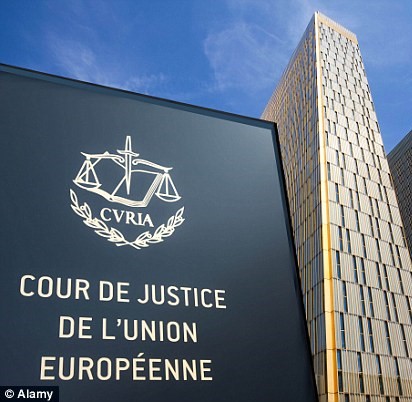
Case could establish critical precedent for the freedom of movement of same-sex couples within the EU
Yesterday, the Court of Justice of the European Union (CJEU) held a hearing in the case of Wojewoda Mazowiecki (C-713/23) concerning the recognition by Polish authorities of a same-sex marriage certificate obtained in another EU Member State.
The hearing follows Poland’s refusal to transcribe into the civil registry a certificate of same-sex marriage contracted in Germany between a Polish citizen and a Polish-German citizen. The couple currently resides in Poland.
The Court is asked whether this refusal conforms with the provisions of the Treaty on the Functioning of the European Union (TFEU) and of Directive 2004/38/EC, which establishes the rights of EU citizens to move and reside freely within the EU, read in conjunction with the European Charter of Fundamental Rights (ECHR), particularly the right to respect for private and family life and the prohibition of discrimination.
The Court is asked to follow the reasoning adopted in the recent judgment in the Mirin case, which confirmed that freedom of movement and other fundamental rights guaranteed under the Charter require authorities to transcribe changes to gender markers and forenames obtained in another EU Member State into their civil registries. By requiring Member States to amend entries in the birth certificates of EU citizens, Mirin ensures that the legal framework for registering and amending citizens’ data is consistent across EU Member States.
This would be a significant step towards the protection of same-sex couples across the EU, especially in light of recent European Court of Human Rights judgments in Przybyszewska and Others v. Poland which found the Polish state in violation of Article 8 (right to respect for private and family life) of the ECHR for failing to provide a specific legal framework recognising and protecting same-sex unions, and in Formela v. Poland which found that Poland breached the same provision for failing to recognise the relationships of two same-sex Polish couples married abroad.
According to Senior Strategic Litigation Officer with ILGA-Europe, Marie-Hélène Ludwig: “A positive ruling in this case would go beyond what the Court found in the Coman and Pancharevo cases and build on the Mirin judgment to recognise that transcription of marriage in civil registries is the only way to effectively ensure freedom of movement of same-sex couples in the EU, notably in countries still deprived of any legal framework recognising their union. This is especially important as marital status – just like one’s gender identity and sexual orientation – is a fundamental aspect of a person’s identity and personal status.”
According to attorneys Pawel Knut and Artur Kula from KMA Law Firm, the lawyers representing the applicants in the case: “The positive outcome of this case of may ensure that the transcription of the foreign marriage certificates of same-sex couples will be finally required from those Member States that still do not provide any form of legal protection for same-sex couples. We believe that this would also strengthen an effective protection for the rights of LGBT families around the EU”.
The Advocate General’s Opinion in this case will be rendered on 3 April 2025.ILGA-Europe is providing support to the applicants and their lawyers in this case.
Joint statement: EU Court of Justice strengthens trans rights by calling for the automatic recognition in birth certificates
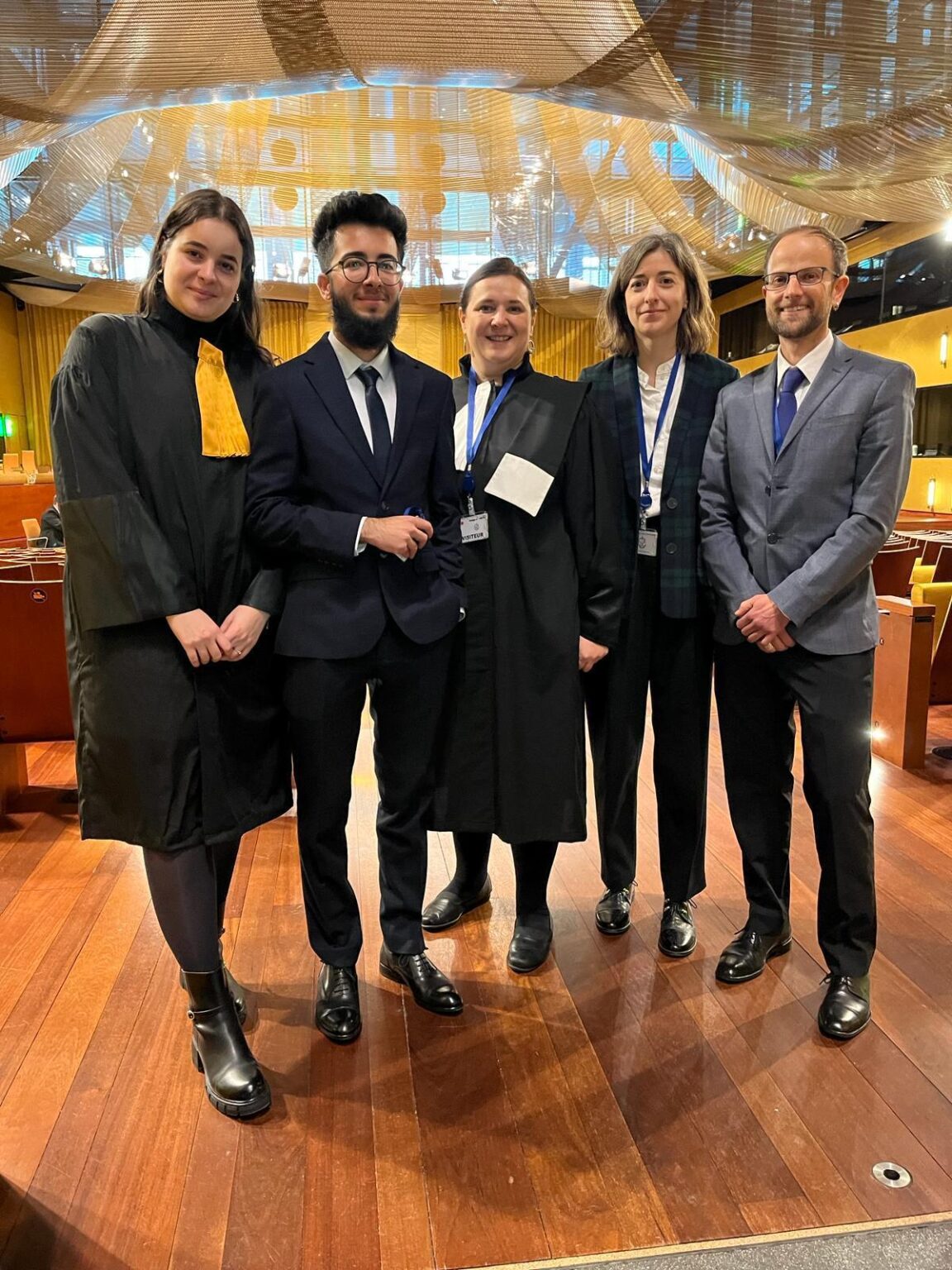
ACCEPT, TGEU and ILGA-Europe welcome today’s decision of the Court of Justice of the EU (CJEU) said that the refusal of an EU Member State to recognise changes of forename and gender acquired in another Member State is contrary to the rights of EU citizens.
The case C-4/23 Mirin concerns Arian Mirzarafie-Ahi, a Romanian trans man, with dual Romanian-British citizenship. Arian began the legal process to change his legal gender and name in 2017 and was granted a gender recognition certificate by UK authorities in 2020. At that time, the UK was in the Brexit transition period and still treated as a Member State of the EU. Subsequently, Romania refused to register the name and legal gender recognition of the applicant obtained in the UK and demanded that he go through Romania’s judicial legal gender recognition procedure. However, the European Court of Human Rights had already found that Romania does not have a procedure for change of name and gender marker that satisfies the standards of the European Convention of Human Rights (ECHR) of being quick, transparent and accessible.
The Romanian court asked the EU’s top court to clarify whether EU law required Romania to recognise another Member State’s decision acknowledging the name and gender marker of the applicant or if it could enforce its own procedures for legal gender recognition. In other areas of law, EU Member States commonly recognise each other’s decisions without further procedures. As such, this case marks a pivotal moment in addressing the mutual recognition of legal gender recognition decisions across EU Member States.
The CJEU Decision
The CJEU ruled in favour of Arian, stating that Romania must recognise the legal gender recognition granted in the UK. The Court emphasised that the refusal to acknowledge changes of forename and gender acquired in another Member State is contrary to the fundamental rights of EU citizens, particularly the principles of free movement and non-discrimination. The Court highlighted that mutual recognition of legal decisions among Member States is essential for upholding the rights of individuals within the EU, and that personal identity, including gender, is a fundamental element of one’s identity, protected under Article 7 of the Charter of Fundamental Rights and Article 8 of the European Convention on Human Rights. This landmark ruling reinforces the obligation of Member States to respect and recognise the legal gender identity of individuals as granted by other EU countries.
Impact
The importance of this judgement extends beyond the applicant’s individual circumstance, and underscores the broader issue faced by trans people whose legal gender recognition in one Member State is not acknowledged elsewhere in the EU, preventing them to travel freely, live, work or study across the EU, or even to vote, as any other citizen is able to. The judgement confirms the principle that rights legally obtained in one Member State must remain valid throughout the EU.
Reactions
According to Arian’s legal counsel, human rights lawyer Iustina Ionescu: “Today’s verdict has shown us that trans people are equal citizens of the European Union. When you have rebuilt a life in another part of the European Union because you are not welcome in your own country, it is normal to ask to be treated with dignity when interacting with the authorities in your home country. The fact that today the Court ruled on the mutual recognition of LGR decisions, no matter how different the procedures are in the Member States, should determine Romanian authorities to also adopt a fast, transparent and accessible national procedure, as requested by existing ECHR jurisprudence.”
TGEU Expert Advisor, Richard Köhler, said: “The CJEU’s ruling in the Mirin case is a monumental victory for trans people in Europe! Arian was forced to navigate a legal nightmare, facing the prospect of conflicting passports and demands for sterilisation to match his legal gender on Romanian and UK documents. Member States must recognise each other’s decisions—this is about equality and dignity. Romania, it’s time to act: Arian deserves his passport now, and the country needs a legal framework for recognising foreign gender identities.”
ILGA-Europe’s Senior Strategic Litigation, Marie-Hélène Ludwig added: “Today’s ruling confirms that without mutual recognition of legal gender recognition from one Member State to another, the right to freedom of movement and residence is not guaranteed for trans people in the EU. It is a great victory that shows the power of strategic litigation in the EU. This judgement will have an immensely positive impact, increasing legal protection for all trans people in the EU, all the more as certain EU countries like Romania still do not provide a legal framework for legal gender recognition conforming with European Court of Human Rights’ standards.”
Romanian NGO ACCEPT is a plaintiff in the case alongside Arian. TGEU and ILGA-Europe supported ACCEPT throughout the case, and joined Arian’s legal team at the Oral Hearing before the CJEU in January 2024.
Joint statement: EU Court of Justice Advocate General calls on Hungary to correct trans refugee’s gender marker in national registries
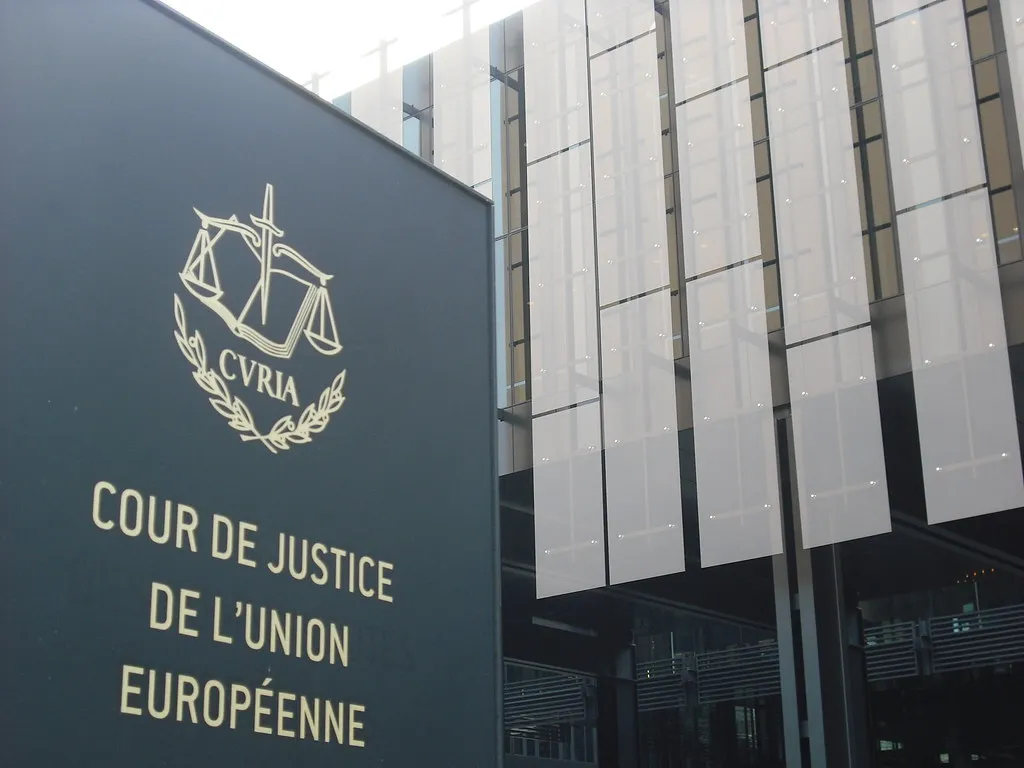
Háttér Society, ILGA-Europe and TGEU welcome an opinion from the Advocate General of the Court of Justice of the European Union stating that Hungarian immigration authorities must correct the gender marker of a trans person in its national immigration registries upon request.
Today, the Advocate General of the Court of Justice of the European Union (CJEU) has issued an opinion on the case of Deldits (C-247/23) calling on Hungary to correct the gender marker of the applicant in the national immigration registry upon request.
The opinion specifically relates to the case of a trans refugee in Hungary who has been denied legal gender recognition (LGR) in the asylum register since 2021. Represented by Háttér Society and the Hungarian Helsinki Committee, the complainant, who was granted refugee status in Hungary in 2014, has sought the rectification of his gender marker and name (as it reflected his sex at birth) on the national registry under Article 16 of the EU’s General Data Protection Regulation (GDPR).
This case raises crucial questions for the CJEU: whether the GDPR mandates the rectification of the gender marker on national registries upon request, and if so, does this request require evidence? If so, does it need to include proof of surgical intervention?
Advocate General Collins stated that following Article 16 GDPR in conjunction with Article 5(1)(d) GDPR Hungarian authorities need to rectify the gender of the applicant, whose data they recorded inaccurately in the first place. He also pronounced that while evidence might be requested, proof of surgical intervention cannot be required.
This case marks a pivotal moment in the ongoing battle for the rights of trans people in Hungary. The 2018 Constitutional Court decision and the 2020 European Court of Human Rights judgment affirmed the right of trans refugees to legal gender recognition. Nonetheless, the Hungarian legislature has not implemented the necessary changes. Hungarian citizens have not had access to LGR since May 2020, whilst refugees never had access to such recognition.
Eszter Polgári, Director of the Legal Program at Háttér Society, emphasised the potential implications of a ruling in line with the opinion: “The preliminary ruling reflecting the Advocate General’s opinion might have an impact beyond the specific case, as a positive decision of the Court of Justice of the European Union will hopefully force the legislator to reconsider the procedure on legal gender recognition also for Hungarian citizens, and bring it in line with international human rights and EU law, including the relevant provisions of the GDPR.”
TGEU Expert Advisor, Richard Köhler, adds: “Respect and recognition matter for everyone. For many trans people it is a significant step to living fulfilling lives. The Advocate General’s opinion is a substantial move towards EU Member States finally recognising their responsibility to introduce proper legal gender recognition procedures for all trans people.”
ILGA-Europe Senior Strategic Litigation Officer, Marie-Hélène Ludwig, said: “This opinion is a significant development for the rights of trans people in the EU, including refugees, particularly in countries still deprived of any legal framework for legal gender recognition, in breach of their international obligations. We are looking forward to the judgment confirming Member States’ obligation to record correct gender markers in all national registries.”
The Advocate General at the Court of Justice of the European Union offers independent, expert legal opinions on cases to guide the judges in making their final decisions.
The CJEU’s decision is expected at the beginning of 2025. It holds significant potential to influence the legal protections for trans people within Hungary and across the EU.
ILGA-Europe and TGEU – Trans Europe and Central Asia are providing support to Háttér Society in this case.
European court hears landmark case on trans rights in Hungary

The Court of Justice of the European Union held a significant hearing today concerning legal gender recognition for trans people in Hungary
Today, the Court of Justice of the European Union (CJEU) heard the case Deldits (C-247/23), which involves a trans refugee in Hungary who has been denied legal gender recognition (LGR) since 2021. Represented by Háttér Society and the Hungarian Helsinki Committee, the complainant, who was granted refugee status Hungary in 2014, has sought judicial review under Article 16 of the EU’s General Data Protection Regulation (GDPR).
This case raises crucial questions for the CJEU: whether GDPR mandates the rectification of personal data, including gender marker, upon request; what evidence is necessary to support such requests; and whether medical or surgical interventions must be proven.
In addition to the European Commission and advocacy groups, the governments of Hungary, France, Spain and the Netherlands participated in today’s hearing, highlighting its broader implications for LGR in Hungary.
The Budapest-Capital Regional Court’s referral to the CJEU marks a pivotal moment in the ongoing battle for trans rights in Hungary. Despite the 2018 Constitutional Court decision and the 2020 European Court of Human Rights judgement affirming these rights, the Hungarian legislature has yet to implement necessary changes. LGR for both refugees and Hungarian citizens has been banned since 2020.
According to Katrin Hugendubel, Advocacy Director at ILGA-Europe: In its final judgment, the CJEU will have the opportunity to address the discrimination faced by trans EU citizens when a gender marker that does not correspond to their gender identity is recorded in the national registrars. The case is of the utmost importance to protect the rights of trans citizens in Hungary and across the EU, notably in the context of the Hungarian ban on legal gender recognition.
The opinion of the Advocate General is expected on 12 September 2024. The CJEU’s decision is anticipated later in the autumn, and it holds significant potential to influence the legal framework for trans rights within Hungary and the broader EU.
ILGA-Europe, alongside Transgender Europe (TGEU), are providing support to Háttér Society in this case.
Read the press release by Háttér Society here.
EU Court of Justice Advocate General calls for automatic recognition of legal gender recognition in birth certificates

An opinion from the Advocate General of the Court of Justice of the European Union states that documents received in the UK by Romanian trans man must be recognised in his home country.
In a significant development regarding the rights of trans people in the European Union, the Advocate General of the Court of Justice of the European Union (CJEU) has issued an opinion calling for the automatic recognition in birth certificates of new name and gender marker acquired in a Member State.
The opinion specifically pertains to the case of Arian Mirzarafie-Ahi, a trans Romanian man facing his home country’s authorities’ refusal to recognise in his birth certificate his new gender marker, acquired further to his legal gender recognition in the United Kingdom.
Advocate General Jean Richard de La Tour said it was imperative that the Romanian state record in his birth certificate entries related to his name and gender without additional procedures. This recognition, argued the Advocate General, is essential in upholding the rights to free movement and private and family life guaranteed by the European Union.
Arian’s case, supported by the ACCEPT Association, ILGA-Europe and TGEU, marks a pivotal moment in addressing the mutual equivalence of legal gender recognition (LGR) procedures across EU Member States.
The refusal of authorities in Romania to recognise Arian’s UK-issued identity documents has left him in a precarious situation, living with two different identities. Despite being a citizen of the European Union, Arian’s ability to exercise his freedom of movement and his right to private and family life is hindered by the lack of recognition of his true identity in his home country. This discrepancy exposes him to discrimination and humiliating treatment, particularly at border crossings.
Expressing anticipation for a favourable judgment from the CJEU, Arian emphasised the significance of having his identity accurately represented in official documents. “The favourable judgment of the CJEU is extremely important for me and many other Romanian and EU citizens,” he said. “It is about respecting a fundamental civil right. I am Romanian, I am in the European Union, I am trans. My documents must represent me and be updated.”
The importance of this case extends beyond Arian’s individual circumstances. It underscores the broader issue faced by thousands of individuals whose rights are compromised due to disparities in identity recognition among EU Member States. The opinion of the Advocate General reinforces the principle that rights legally obtained in one Member State must remain valid throughout the EU.
In response to the Advocate General’s opinion, Katrin Hugendubel, Advocacy Director at ILGA-Europe, added: “The AG opinion confirms what we have been pointing out for EU institutions for quite some time: without mutual recognition of legal gender recognition from one member state to another, the right to freedom of movement is not guaranteed for trans people in the EU. We are looking forward to the judgement confirming this opinion and urge the European Commission yet again to put forward legislation that will guarantee the freedom of movement for all LGBTI people under its next term. The EU directive on parenthood recognition is a very important piece of the puzzle to ensure the freedom to reside and move across the EU for LGBTI people, but more is needed to ensure that trans people can move freely across the EU and enjoy citizenship rights on equal footing with every other citizen of the EU.”
As the CJEU deliberates on this case, there is a collective hope that the judgment will align with the opinion of the Advocate General and ensure the automatic recognition of Arian’s legal gender recognition in the corresponding entries of his birth certificate by the Romanian state. However, we hope that the Court will not take into account in its judgment the questions of “marriage and parentage” emphasised by the Advocate General in his Opinion, which are not at stake in Arian’s case.
European court to hear landmark case regarding discrimination against non-binary people

The Court of Justice of the European Union is to decide on lawsuit over the lack of provision of an option for non-binary persons, which may have a far-reaching effect
On Monday, April 29, the Court of Justice will be required to answer the question: Does GDPR and European non-discrimination law require organisations to provide an option for non-binary persons in their forms?
The hearing follows a lawsuit filed by the Mousse Association, representing 64 individuals, against France’s national state-owned railway company’s (SNCF) practice of forcing passengers to choose between the civil titles “Mr” or “Ms” when purchasing train tickets. If the association wins the case, private and public organisations in the 27 European Union States will have to either stop collecting gender markers when it is unnecessary or provide an option for non-binary persons in their forms.
This would be a significant step forward for the rights of non-binary persons, but also LGBTI people who do not identify within the gender binary.
The case relies on the General Data Protection Regulation (GDPR), invoking the principles of data minimisation and accuracy and European non-discrimination law. It aims to set a significant precedent for the inclusion of all gender identities in the European Union, by requiring forms without any reference to gender markers or with inclusive options.
According Senior Strategic Litigation Officer with ILGA-Europe, Marie-Hélène Ludwig: “The upcoming hearing is a crucial step to put an end to the misgendering and discrimination faced by non-binary persons who are forced to choose in their day-to-day lives between two options that do not correspond to their identity.”
According to Mr Étienne Deshoulières, the lawyer representing the Mousse Association: “This procedure is not only a fight against outdated forms, but a battle for the recognition and respect of each individual in their singularity. It defends the right of every person not to be trapped in the gender binary that does not correspond to their true identity. It is a question of respect for fundamental rights to self-determination, non-discrimination and the protection of personal data.”
ILGA-Europe, alongside Transgender Europe (TGEU), are providing support to the applicants and their lawyers in this case.
Inventory of relevant SOGIESC case law and pending cases before the ECtHR and CJEU 2024
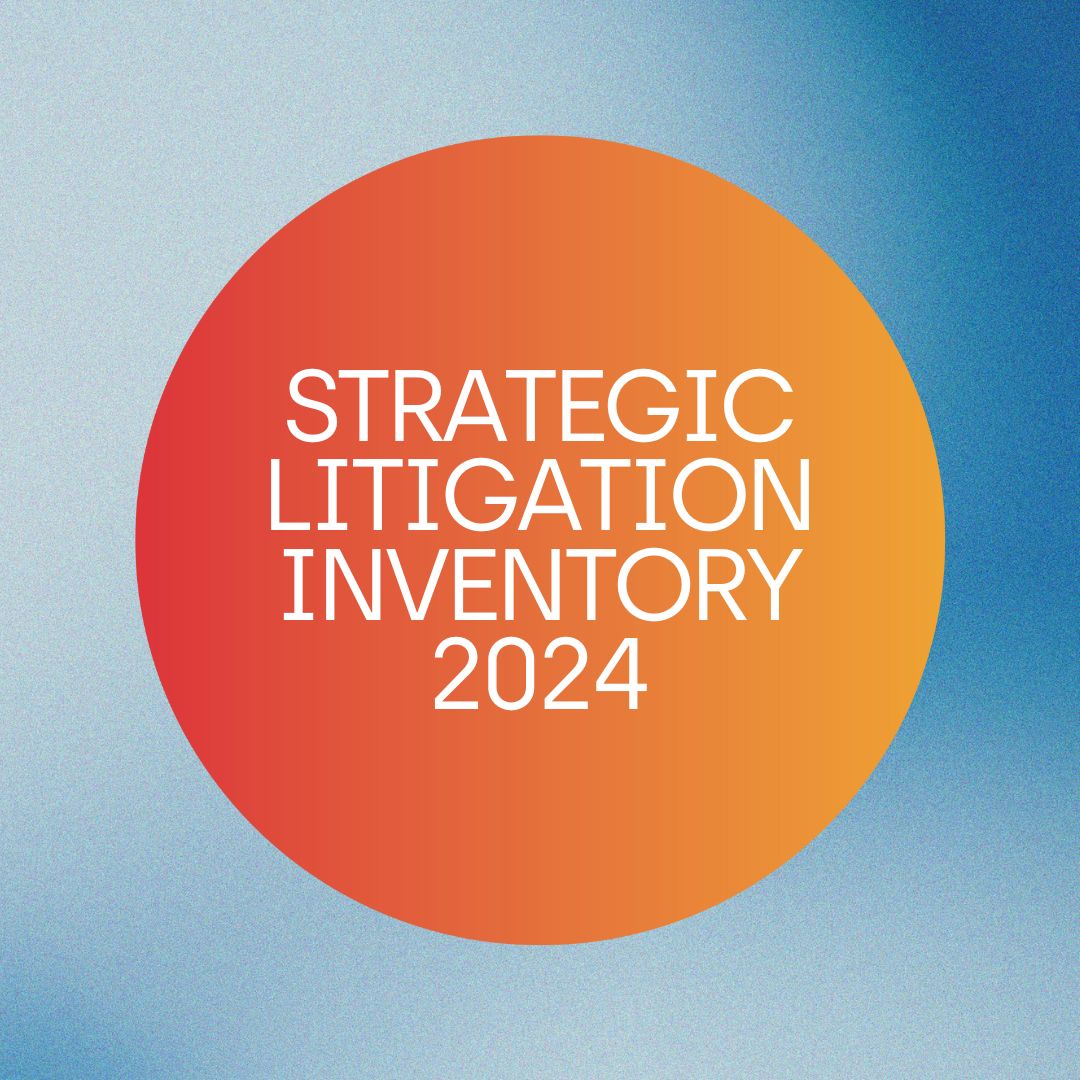
In order to focus our strategic litigation efforts across Europe to fully protect and advance LGBTI rights, with this inventory ILGA-Europe wants to support members and partners across the region to identify trends and gaps in protection at the European level, which can commonly be tackled through litigation. The inventory can further strengthen cooperation and help guide our work and efforts by others in bringing forward and supporting strategic cases.
This inventory and continuous assessment of the European landscape informs ILGA-Europe’s ongoing engagement in strategic litigation through identification and support of strategic opportunities.
This inventory covers relevant SOGIESC cases from 2010 up until December 2023.
The infringement against Hungary: Behind the scenes

As the deadline for member states to decide whether they will join the European Commission’s lawsuit against Hungary for its introduction of anti-LGBTI legislation fast approaches, we look at the vital work ILGA-Europe has been doing behind the scenes to bring this case before the EU Court of Justice and to bring countries on board.
In June 2021, the Hungarian Parliament adopted a law that prohibits or limits access to content that portrays the so-called ‘divergence from self-identity corresponding to sex at birth, sex change or homosexuality’ for individuals under 18. On 15 July 2021, the European Commission began infringement proceedings against Hungary for its potential breach with this legislation of several rights in the Charter of Fundamental Rights of the European Union and fundamental EU values. Then, on 2 December 2021, the Commission sent a reasoned opinion stating that Hungary had failed to fulfil its obligations under various EU directives. As Hungary’s response to the reasoned opinion was unsatisfactory, the Commission referred the case to the CJEU.
Next Tuesday is the deadline for Member States to give their support to the case at the CJEU, and while more member states are signing on, some key member states have not done so, and we continue our efforts to bring them on board.
It may seem that the nine member states who have given their support to the case are doing so simply because the human rights of LGBTI people are at stake, but the journey to bring an infringement procedure to the courts and for any member state makes in supporting a case against another member state is complex and fraught with obstacles. That’s why the long-term work behind the scenes of organisations like ILGA-Europe, which represents the LGBTI movement in Europe, has been key to gaining support for this infringement.
As with any litigation at the EU Court of Justice, the infringement against Hungary is rooted in protecting the EU treaties and legislative framework. The risk that violations of human rights can be dismissed, due to the fact that they do not fall within EU competences, is high. This is why from the very beginning, we equipped EU member states with the detailed arguments on how this piece of legislation violates EU law and thus allowed them to strongly come out against the law in the European Council in June 2021, right after the adoption of the law.
It is another long journey from a political statement to actually intervening at the Court. Member states, who are always reluctant to go up against each other at the EU Court, need to be furnished with a clear way forward within the EU framework. For us that meant finding the right people within the government administrations, connecting to them, and showing them the ways in which Viktor Orbȧn’s anti-LGBTI law actually contravenes the laws of the European Union, which Hungary signed up to when it became a member state. It also meant us providing information about how member states can intervene at the Court and what needs to be in place to do so.
Putting the Pressure On
When the Hungarian law was first published, alongside one of our member LGBTI organisations in Hungary, Hatter, we invested heavily in working with member states, providing them with accurate information about the law and our assessment of it. Using this, we were able to keep pressure on member states to encourage the European Commission to go forward with an infringement procedure in the first place.
The Hungarian law clearly violates the human rights of LGBTI people, such as freedom of expression and in education, but the tricky issue with EU infringement is that you need to prove exactly how a law introduced by a member state actually goes against EU legislation. For example, in the area of education the EU has very little competence. So, we knew that infringement couldn’t be based on the education element of the Hungarian law. Together with Hatter, we analysed the law at a deep level to find exactly how it went against EU legislation.
When, encouraged by a letter from 17 member states, the Commission launched its infringement against Hungary, we hosted a meeting, bringing together key players from different member states, knowing it was vitally important that they were in touch with each other, so that they could support each other in making the arguments within their administrations to support the case. Alongside our analysis, we provided technical advice about how to intervene, what the deadlines would be, and so on.
Until the moment a member state has officially declared that they’re supporting a case, it’s a very fragile process and therefore we don’t want to talk about it on a public level. We simply work hard behind the scenes to give member states everything they need to prove to their own legal administrations that they can realistically go forward, and the information on how they can do so.
The story goes back a long way
Really, this work began long before the Hungarian anti-LGBTI law was introduced. Alongside our member organisations, we have been actively educating member states so they can see they have a proactive role to play on EU level in general, and more specifically in front of the CJEU for a long time. Back in 2018, when the Coman case came before the CJEU, seeking the extension of free movement rights to same-sex couples in the EU, we worked with ACCEPT, our member LGBTI organisation in Romania, to help prepare the case. Our further role was to establish contacts with member states, to raise their awareness of the case and what it entailed, and to encourage them to intervene.
More recently we worked in the same way with Bulgarian member organisations in helping prepare the Baby Sara case, in which the CJEU ruled that a parent in one EU country is a parent in all EU countries, and in bringing member states on board to intervene.
This is slow-burning, long-term work. It’s about building the awareness of member states of the legal contraventions involved, but also their own mechanisms to be ready to act within the often very short deadlines of the court. We have seen the leading role that the Netherlands has been playing in supporting the Commission in the infringement case against Hungary, and in reaching out to other member states. This is building on the fact that the Netherlands, encouraged and educated by ILGA-Europe alongside our member organisations, intervened in both the Coman and Baby Sara cases.
What happens if the infringement is successful?
It doesn’t end there, and nor does our work simply end if the infringement against Hungary is successful. When it’s done, we will begin our work behind the scenes to actually get the judgement implemented, which won’t be easy or immediate. Romania has yet to implement the CJEU judgement in the Coman case, which was decided upon five years ago. Bulgaria recently said it would not implement last year’s CJEU judgement in the Baby Sara case.
However, if the infringement is successful and Hungary still refuses to drop its anti-LGBTI law, which it is likely to do, this doesn’t mean the success of the case will have no immediate impact. Winning these cases means that EU legislation will strengthen the work of national organisations, and if other EU governments come up with similar legislation, which is not unthinkable, other member states will have a mechanism and framework with which to act.
At ILGA-Europe, we deal in the certainties of the law. We examine what a procedure is about and what it is not about, and we take our work from there. We’re in it for the long term behind the scenes, working towards our goal of freedom, safety and equality for all LGBTI people in Europe and Central Asia. If we pretended that a case that is really about EU competencies is a case about something else, such as human rights compliance, we would find ourselves in murky waters. And member states do not like murky waters. They like certainty, as do the European Commission and courts.
Sexual orientation is not a reason to terminate a contract with a self-employed worker, says Advocate General of the CJEU
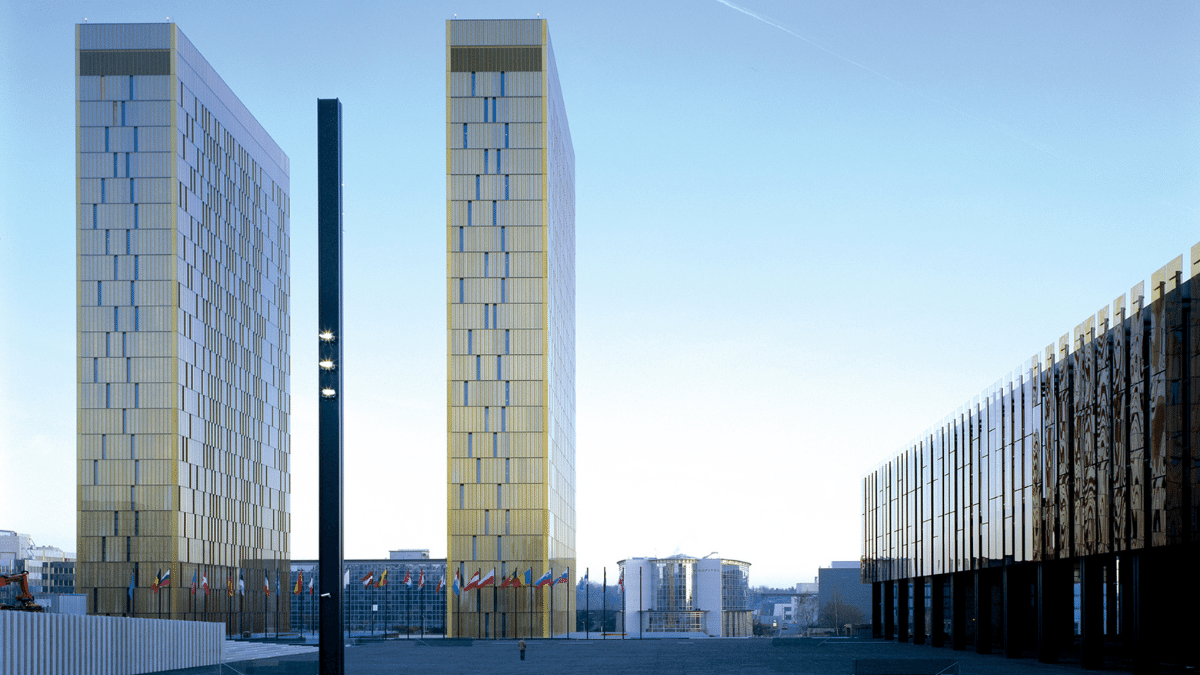
Today, the Advocate General of the CJEU has issued an opinion in the case of J.K. vs the Polish public broadcaster company TP, stating that discrimination based on sexual orientation in employment is not acceptable under EU law.
ILGA-Europe welcomes the Advocate General of the Court of Justice of the European Union’s (CJEU) opinion, published today in the case C-356/21, concerning the refusal to continue a contract of work with a self-employed person on the basis of that person’s sexual orientation violates EU law.
The applicant, J.K., is seeking compensation from the Polish public broadcaster TP for the breach of the principle of equal treatment on the grounds of sexual orientation in the form of direct discrimination in the context of the employment relationship between the two parties. J.K is openly a member of LGBTI community, and together with his partner, he engages in the activism for LGBTIQ+ rights, including running a popular YouTube Channel.
The Defendant is the Polish public broadcaster TP, a nationwide public TV network fully owned by the State Treasury. During 2010 – 2017, the employment relationship between the Applicant and the Defendant was based on regularly concluded, consecutive short-term contracts for specific work.
In December 2017, the Applicant and his partner released a Christmas video on their YouTube Channel, where they appeared among other members of the LGBTIQ+ community. Two days after the video was posted, the Applicant received an e-mail from his immediate supervisor cancelling his scheduled shifts. He was also informed that the Defendant was not planning to cooperate with the Applicant any longer. He was replaced by another employee, who had neither the qualifications nor the experience to perform the tasks previously performed by the Applicant.
In her opinion the Advocate General firstly confirmed that self-employment is covered under the Directive and by covering the area of ‘employment and occupation’, the “Directive aims at enabling citizens to realise their potential and earn their living by providing their work”. Furthermore, in addressing the issue concerning “conditions for access to self-employment”, the AG suggests that the Directive covers both initial stage of concluding a contract, but also the provision relating to the termination of contractual relationship. At all stages, discrimination based on sexual orientation is not acceptable.
According to Arpi Avetisyan, Head of Litigation with ILGA-Europe: “Advocate General Capeta’s opinion is a welcome confirmation that discrimination based on sexual orientation has no place under the EU Directive, including for self-employed workers. We hope the Court will follow the Advocate General’s opinion and build on it so that EU law in this area protects self-employed workers ensuring equal access to employment. Freedom to choose a contracting party does not imply freedom to discriminate.”
Update: The Rights of Rainbow Families in the EU

The Court of Justice of the EU has ruled in two occasions over recent months that EU countries must protect the freedom of movement of rainbow families. This is a right all EU citizens should enjoy, LGBTI people too. In today’s blog, we bring you the state of LGBTI people’s family rights in different EU countries.
Baby Sara and Baby Sofia are too little yet to understand the change they’ve brought about for rainbow families in the EU. They don’t know that they share similar experiences. Both were born in Spain to lesbian couples and both were at risk of statelessness during the first years of their lives.
For quite some time, Sofia, daughter of Irish and Polish mothers, and Sara, daughter of British and Bulgarian mothers, did not have access to identity documents and couldn’t leave Spain. One of the reasons was that the countries of one of their mothers, Bulgaria in the case of Sara, and Poland in Sofia’s, refused to recognise the birth certificate issued in Spain because the parents in the documents were two persons of the same sex. After the Court of Justice of the EU rulings on their cases, both Sara and Sofia have helped to further the protection of rainbow families’ rights in the European Union.
First it was Baby Sara. At the end of 2021, the CJEU issued a landmark judgment in her case, stating that if one EU country recognises the child’s parental relationship, as Spain had done, then all EU countries should do the same, and so guarantee the child its freedom of movement across the region, which is a right of all EU citizens. The court decreed that Bulgarian authorities must issue an identity card or a passport to baby Sara, and that all other EU countries should recognise and follow this ruling.
In June 2022, the CJEU confirmed this in the reasoned order in the case of Baby Sofia’s, stating something very similar: when an EU country has recognised two persons of the same sex as parents of a child, then the EU country of which that child is a national, should issue identity documents to that child with both parents on them, and all EU countries should protect the right to freedom of movement of the child and their family. Poland has been told that it must now provide the child with identity documents and guarantee her and her parents the right to move and reside freely in the country.
These are protections granted in Articles 20 and 21 of the Treaty on the Functioning of the European Union (TFEU) and Articles 7 and 24 of the Charter of Fundamental Rights of the EU, among others.
The cases of Baby Sara and Baby Sofia have strengthened the freedom of movement of LGBTI families across the EU as citizens of the Union, which does not necessarily translate into changes in national legislation Union. The family rights of LGBTI people vary significantly across the Union.
Have a look at the family rights of LGBTI people in the EU:
13 countries recognise marriage equality and joint adoption for same-sex couples.
They are: Austria, Belgium, Denmark, Finland, France, Germany, Ireland, Luxembourg, Malta, Netherlands, Portugal, Spain and Sweden.
Bonus: Some weeks ago, Slovenia’s Constitutional Court ruled that marriage is a life union of two persons, paving the way for same-sex marriage and adoption. The Court gave the Slovenian Parliament six months to comply with this decision.
In 13 countries registered partnership with similar rights to marriage is possible for same-sex couples
They are: Austria, Croatia, Cyprus, Greece, Hungary, Ireland, Italy, Luxembourg, Malta, Netherlands, Portugal, Slovenia and Spain in some regions.
Additionally, in seven countries same-sex couples have access to registered partnership with limited rights.
In 11 countries, medically assisted insemination is available for same-sex couples and singles
They are: Belgium, Denmark, Finland, France, Ireland, Luxembourg, Malta, Netherlands, Portugal, Spain and Sweden.
In Austria, only couples have access and in Latvia, only singles.
Only 4 countries of the EU, Belgium, Malta, Slovenia and Sweden, recognise trans parenthood.
Rainbow families have the right to move and reside freely, EU court reiterates

The Court of Justice of the EU has stated that birth certificates issued in an EU country must be recognised across the EU, and that EU countries should protect the freedom of movement of rainbow families.
On June 24, the Court of Justice of the European Union (CJEU) issued a reasoned order establishing that when an EU country has recognised two persons of the same sex as parents of a child, then the EU country of which that child is a national, should issue identity documents to that child with both parent on them, and all EU countries should protect the right to freedom of movement of the child and their family. This is a confirmation of a previous landmark judgment, that of Baby Sara.
Poland has been told that it must now provide the child known as Baby Sofia, born in 2018 to Irish and Polish mothers, with identity documents and guarantee her and her parents the right to move and reside freely in the country.
The case arose when Poland denied citizenship to baby Sofia, daughter of two mothers, Kashka, from Poland, and Sinéad, from Ireland. In 2018, Sofia was born in Spain, where the couple had gone to receive IVF treatment. Spanish authorities issued a birth certificate with the name of the two mothers but not identity documents, as children of foreigners are not automatically entitled to citizenship in the country.
At that time, in Ireland, two women could not be recognised as parents on a birth certificate. In the eyes of Irish law, the mother was the woman who gave birth to the child. As Kasha, the biological mother was not Irish, Sofia couldn’t apply for citizenship in Ireland either.
In Poland, where rainbow families are still not recognised, authorities refused to recognise Sofia’s birth certificate, depriving her of access to citizenship and identity documents. For over two years Sofia remained without any documentary proof of any nationality, and therefore at risk of statelessness. The family was could not leave Spain, as Baby Sofia couldn’t travel without documents. Her mothers had to move house every couple of months, as they were running out of savings.
Now, the CJEU has stated that an EU country is obliged to provide identity documents to a child when the child, being a national of the country, has a birth certificate issued in another member state that designates two persons of the same-sex as their parents. All EU countries must respect the documents that allow the child and their family to exercise their right to move and reside freely with the territory of the EU. These are protections granted in Articles 20 and 21 of the Treaty on the Functioning of the European Union (TFEU) and Articles 7 and 24 of the Charter of Fundamental Rights of the EU, among others.
With this reasoned order, the CJEU has confirmed the landmark judgment delivered in the Baby Sara case last year, which arose when a same-sex couple were refused a birth certificate in Bulgaria for their daughter, also born in Spain. Poland must now provide Baby Sofia with identity documents and guarantee her and her mothers the right to move and reside freely in the country.
In the meantime, Spain issued identity documents to Sofia in March 2019. Spanish law foresees a safeguard measure that allows children born in its territory who would otherwise be stateless to acquire Spanish nationality at birth. The couple also applied for Irish citizenship for Sofia through naturalisation over two years ago, but they have not received any feedback since March 2020. The Children and Families Relationship Act, which allowed both women in a same-sex couple to be automatically recognised on their child’s birth certificate, was enforced in Ireland in May 2020.
Welcoming the order, but concerned about its implementation, the lawyer for Baby Sofia’s parents, Anna Mazurczak said: “We are, of course, happy that the Court has applied the reasoning from the Bulgarian case in a Polish case. However, the Court has not been as straightforward as we had hoped. We wanted to make sure that Poland had the obligation not only to issue an ID but also to indicate the first names of same-sex parents on it.
“Through the CJEU’s reasoned order, we hoped to convince the Supreme Administrative Court of Poland that issuing an ID with one mother’s name is not enough. The CJEU has already held that different last names contained in documents issued by different member states can cause an obstacle to the right of freedom of movement. In my opinion, the different parent names on the ID card can violate freedom of movement even more.”
Recently, a draft amendment to the Family Code was submitted for public consultation in Poland, where marriage equality, same-sex registered partnerships and co-parent recognition are not recognised. While it could improve the situation of children of same-sex parents born abroad by recognising their birth certificates, it also presents a discriminatory approach towards rainbow families. There is no clear timeline for the development and implementation of these amendments.
According Arpi Avetisyan, Head of Litigation at ILGA-Europe: “The CJEU’s reasoned order is a welcome confirmation of the rights of children in rainbow families. The Polish and Bulgarian cases that have reached the CJEU, Baby Sofia and Baby Sara, are not isolated. They show the tip of the iceberg of the numerous examples of the hardships experienced by rainbow families in the EU.
“We hope that the upcoming European Commission’s legislation on parenthood recognition, by incorporating the CJEU rulings, will provide a framework for removing obstacles to freedom of movement for rainbow families. What is crucial at the present, however, is that Poland and Bulgaria put in place necessary procedures for implementing CJEU’s judgment and reasoned order as soon as possible.”
Meanwhile, in Bulgaria, the ruling in Baby Sara’s case has not yet been implemented. While on 16 May, Sofia’s Administrative Court, which had asked the CJEU for clarification in this case, ruled that Capital Municipality, Pancharevo District must issue a birth certificate with both of Sara’s mothers on it, the decision was appealed by the Municipality on 13 June. This means that to date, Sara is still without documents and at risk of statelessness.
Hungary to be Brought Before Top EU Court For its Ban on LGBTI Content

The European Commission has referred Hungary to the CJEU over discriminatory amendments adopted in June 2021, which ban the “portrayal and the promotion of gender identity different from sex at birth, the change of sex and homosexuality” to under 18s.
Today, 15 July 2022, the European Commission formally referred Hungary to the Court of Justice of the European Union due to Hungary’s unsatisfactory response to concerns raised in the “reasoned opinion” sent by the Commission in December 2021.
This “reasoned opinion” was the second stage of the infringement process launched against Hungary in July 2021, in which the Commission outlined its concerns about the amendments breaching various aspects of EU law, asked for clarification over certain issues, and requested the amendments be brought in line with EU law.
In particular the Commission is concerned about discrimination against LGBTI people when it comes to various areas of EU competence, including the freedom to provide services, the free movement of goods, the Audiovisual Media Services Directive, the e-commerce Directive, freedom of expression and information, the right to respect of private life, and the right to non-discrimination.
ILGA-Europe’s member organisation, Hátter Society has reported that the amendments have already had a severe impact on LGBTI people in Hungary, as media service providers, bookshops, libraries, schools, and other actors covered by the law have begung to implement it voluntarily, in fear of sanctions. The discriminatory amendments and government campaigning around them has also resulted in a stark increase in hate crime against LGBTI people, and the amendments also leave LGBTI people and organisations at risk of arbitrary legal proceedings.
The Commission has found that Hungary’s response to their concerns in relation to equality and the protection of fundamental rights is unsatisfactory and does not include any commitment to remedy the incompatibility of the amendments with EU law, and have therefore decided to refer Hungary to the EU’s Court of Justice.
According to ILGA-Europe’s Executive Director, Evelyne Paradis: “It is encouraging to see the European Commission strongly defending EU law and the principle of non-discrimination when it comes to the treatment of LGBTI people. These amendments breach a variety of EU laws in a wide range of areas, and have already had a devastating impact on the rights of LGBTI people in Hungary. For too long the Hungarian government has been using LGBTI people as a political scapegoat; the rule of law must prevail in order to stop such an abuse of power. Now it is over to the Court of Justice of the European Union to live up to its legal responsibilities and defend EU law and the right of LGBTI people to live free from discrimination.”
To learn about the anti-LGBTI amendments in Hungary, and how the media, bookshops, libraries, schools etc. are implementing them, read this alarming report.
Read the Commission’s press release, which explains in more detail about which EU laws are breached here.
How Baby Sara and her mums have pushed forward the rights of all rainbow families across the EU

When an EU country recognises a child and its same-sex parents as a family, all EU countries should recognise them as such, so to guarantee their freedom of movement. This is what the EU’s top court ruled in December. But how this case has advanced LGBTI rights in the European Union and what comes next for rainbow families?
At the end of 2021, the Court of Justice of the European Union (CJEU) ruled that if one EU country recognises the child’s parental relationship, then all EU countries should do the same to guarantee the child its freedom of movement across the region, a right of all EU citizens.
The ‘Baby Sara’ case, as it has become known, will have a long-term impact on rainbow families in the EU. Born in Spain to a lesbian couple, baby Sara was denied citizenship there because neither of her Bulgarian and Gibraltarian mothers are of Spanish descendent. Under the British Nationality Act, Gibraltar-born parents cannot transfer UK citizenship.
So, Bulgaria was the one reasonable option left for the family. But same-sex unions are not recognised in Bulgaria and two persons of the same sex cannot be registered as the parents of a child. The Bulgarian authorities thereby refused to issue a birth certificate on which the parents are two women, choosing to not recognise a valid EU birth certificate from another member state. This left baby Sara at risk of statelessness. She had no identity documents and could not leave Spain.
After December’s CJEU judgment, the Bulgarian authorities are obliged to issue an identity card or a passport to baby Sara, a ruling that all other EU countries should recognise.
So, what are the real implications for rainbow families?
Following the CJEU ruling, Baby Sara and her mothers must be recognised as a family for the purposes of EU law, and must be able to enjoy freedom of movement in all EU countries. Freedom of movement, the right of persons to move and reside freely within the territory of EU member states, is a right of all EU citizens.
This is the first case where the CJEU has ruled on cross-border recognition of parental ties in rainbow families. It stated that it is against the fundamental rights of the child to be deprived of the familial ties established in an EU country when traveling in the EU. The family ties were not recognised in baby Sara’s birth cert application because the parents are two persons of the same sex.
The court also clarifies that national identity cannot be used as an argument to deny freedom of movement to rainbow families. This means that it does not undermine Bulgaria’s national identity to recognise parenthood established in Spain, another EU country, an argument often brought by those countries that do not recognise same-sex families.
In other words, the Court has not obliged Bulgaria to allow and recognise same-sex couples in its territory as the parents of a child. Rather, it simply requires Bulgaria to recognise the familial ties among the members of rainbow families — as these have been established in another EU country — when the family moves to its territory.
Finally, the ruling gave legal endorsement to European Commission’s President Ursula von der Leyen 2020 State of Union address, when she affirmed that “If you are parent in one country, you are parent in every country”.
Will the Baby Sara judgement immediately free up movement for rainbow families in the EU?
Implementation is the crucial part of any European court ruling, and often this is fraught with difficulties and time consuming.
The work of the CJEU has finished for now. The Bulgarian authorities must find a solution and decide on the type of identity documents for Sara. This might take time, and considering the situation of LGBTI rights in the country (Bulgaria is in 37th position out of 49 in our 2021 Rainbow Map of legal rights for LGBTI people in Europe), it may mean additional hurdles for baby Sara’s family and further litigation. For example, the Coman case, also related to same-sex unions and freedom of movement, has not been implemented by Romania after three years since the judgment.
However, if Bulgaria or other countries that do not recognise rainbow families refuse to implement the CJEU judgment, the European Commission can start infringement procedures, as these countries would breach EU law. If carried to their last step, this can mean financial penalties against Bulgaria.
So, it’s not as easy as a judgement being made and every country in the EU suddenly opening its borders to rainbow families. But, the world watched the judgement in the Baby Sara case closely, and it was a major step forward in the recognition of the children of same-sex parents across the European Union. We will be watching the implementation of this case very closely too, and will report on how it is progressing.
At the same time, the European Commission is in the process of working on new legislation on the EU-wide recognition of parenthood as well as on guidelines on ensuring freedom of movement for all. We will work hard to ensure that the judgment will be fully reflected and respected there, with the hope that one day soon, all rainbow families will be able to enjoy the rights that every other family in the EU take for granted.
Hope and the LGBTI Movement in 2021
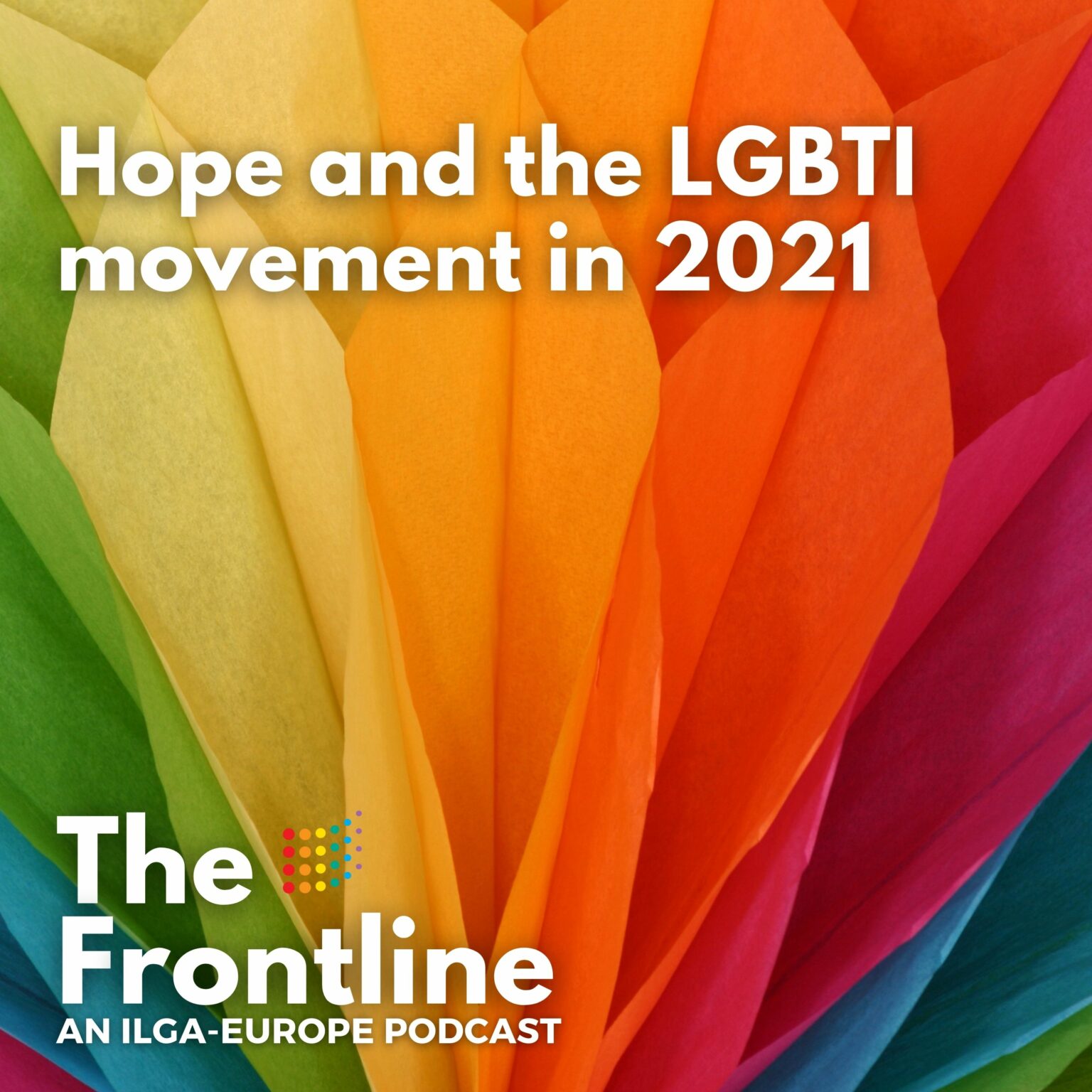
It was a year of further lockdowns, of new strains of the COVID virus, and the uncertainty they have brought, and most of all, enormous reverberations of the unprecedented events of 2020 on people’s lives.
At ILGA-Europe, when the pandemic first kicked in, our motto was ‘the work goes on’, and that work most certainly continued apace throughout 2021, with the growth of a perceived east-west divide in Europe over LGBTI rights; infringement procedures taken by the European Commission against Hungary and Poland because of their anti-LGBTI laws and programs; a sharp rise in the demonisation and isolation of trans people from the women’s movement; and an overall rise in authoritarian regimes seeking to instrumentalise LGBTI lives to limit the rights of others.
So, it’s perhaps strange that our guest in this episode, ILGA-Europe’s Executive Director, Evelyne Paradis finds great hope for the LGBTI movement amid the storm. Listen now, and find out why.
Top EU Court Recognises Relationship of Same-sex Parents and their Children Under EU Law

In a landmark judgement, the Court of Justice of the European Union has ruled that a child and its same-sex parents must be recognised as a family, the child should be issued a Bulgarian passport, and the family should have free movement in all Member States of the European Union.
Today, December 14, the Court of Justice of the European Union (CJEU) ruled that if one EU member state recognises a parental relationship between a child and its parents, then all member states should, in order to give the child it’s right to freedom of movement.
The case ‘Stolichna obshtina, rayon Pancharevo’ arose when a same sex couple were refused a birth certificate in Bulgaria for their infant daughter, who was born in Spain. The Bulgarian authorities asserted that the couple, one of whom is Bulgarian, could not be registered as parents on the child’s birth certificate, leaving the family in legal limbo.
Bulgarian born Kalina Ivanova* and Gibraltar-born Jane Jones* are the mothers of Sara, who was born in Spain in 2019. Under current Spanish law, the child could not acquire Spanish citizenship because neither Kalina or Jane is a Spanish citizen. The child was also denied British citizenship because Jane was born in Gibraltar of British descent, and under the British Nationality Act (1981), cannot transfer citizenship to her daughter.
Therefore, Kalina requested Bulgarian citizenship for their daughter. Bulgarian authorities rejected a request for citizenship of the child, the application, arguing that a child cannot have two mothers, and refused to issue a birth certificate in which the parents are two persons of the same sex.
Sara was therefore deprived of Bulgarian, and therefore European citizenship, and was at risk of statelessness. Currently, the child has no personal documents and cannot leave Spain, the country of the family’s habitual residence. The lack of documents restricts Sara’s access to education, healthcare, and social security in Spain.
In Bulgaria, same-sex marriages and same-sex registered partnerships are not recognised.
Today the CJEU ruled that it is contrary to the fundamental rights guaranteed by Articles 7 and 24 of the Charter for the child to be deprived of the relationship with one of her parents when exercising her right of free movement or for her exercise of that right to be made impossible or excessively difficult on the ground that her parents are of the same sex.
The ruling asserts that the Bulgarian authorities are obliged to issue an identity card or a passport to Baby Sara, which all other EU Member States are obliged to recognise.
Welcoming the ruling, Baby Sara’s parents said: “We are thrilled about the decision and cannot wait to get Sara her documentation and finally be able to see our families after more than two years. It is important for us to be a family, not only in Spain but in any country in Europe and finally it might happen. This is a long-awaited step ahead for us but also a huge step for all LGBT families in Bulgaria and Europe.
“Thank you so much to the LGBT Deystvie organisation in Bulgaria and especially to our legal representation, Denitsa Ivanova and Veneta Limberova for fighting for our family and countless others in our position. Thanks too all the people and organisations who supported us in this process: ILGA-Europe, NELFA, ACCEPT Romania and many others.”
According to Arpi Avetisyan, Head of Litigation at Europe’s leading LGBTI rights organisation, ILGA-Europe, which intervened in the case: “We are very pleased with CJEU’s judgment this morning. It gave legal endorsement to the EC President Ursula von der Leyen DL’s words, delivered during last year’s State of the Union address: ‘If you are a parent in one country, you are parent in every country’. The judgment has brought long-awaited clarification that parenthood established in one EU Member State cannot be discarded by another, under the pretence of protecting the “national identity”. This is a true testament to the EU being a union of equality and we look forward to seeing rainbow families enjoying their right to freedom of movement and other fundamental rights on equal footing to anyone else. It is important that the judgment is implemented imminently, not only for baby Sara and her family, but also for other families facing similar struggles across the EU.”
*Names have been changed.
For comment, contact Ana Muñoz media officer at ana@ilga-europe.org and +32493356055
European Court rules in favour of the best interest of the child in same-sex custody case
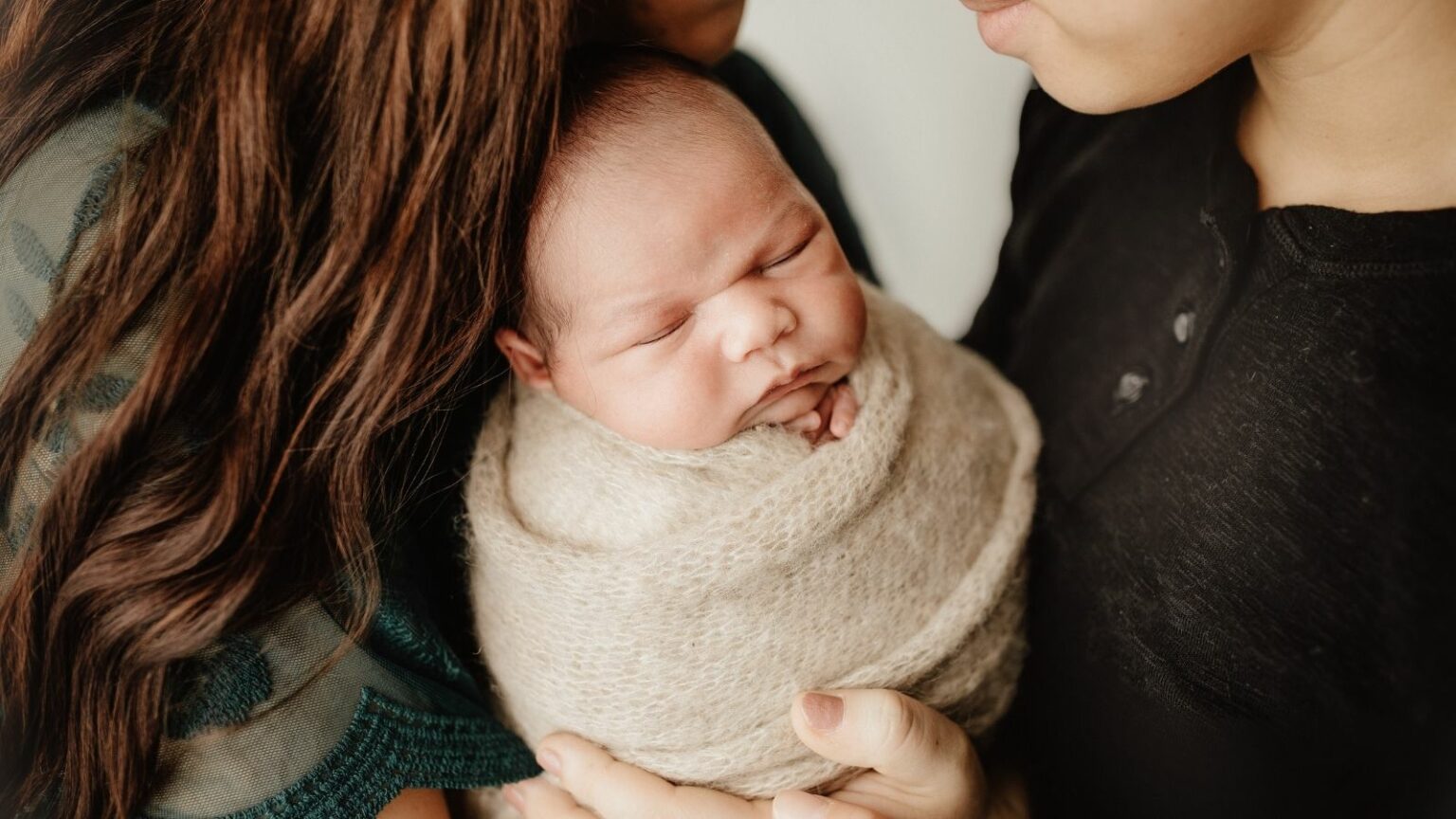
The European Court of Human rights has ruled that the refusing a mother custody of her youngest child on the grounds of her sexual orientation to be discriminatory and a violation of her right to private and family life.
In a judgement released today on the case of X. v Poland, the European Court of Human rights found the refusing a mother custody of her youngest child on the grounds of her sexual orientation as discriminatory and a violation of Article 14 (prohibition of discrimination) in conjunction with Article 8 (right to respect for private and family life) of the applicant.
The case concerned custody arrangements of applicant’s youngest child following her divorce. The main consideration of the courts was that the applicant, the mother of the child, was in a relationship with another woman. She alleged that the courts had acted in her former husband’s favour because of her same-sex relationship.
The Court found that there was “a difference in treatment between the applicant and any other parent wishing to have full custody of his or her child”. Moreover, the Court considered that the discriminatory reference to the importance of a male role model for the boy’s upbringing, which was one of the decisive factors in the dismissal of the applicant’s requests for custody, had outweighed the other arguments: child’s young age, strong bond with the applicant and wellbeing while living with his mother. This reliance on the male role model was discriminatory.
Taking into account that throughout court proceedings, applicant’s sexual orientation and relationship with another woman had been repeatedly referred to as a ground for refusal, the Court concluded that, in “refusing to grant the applicant full parental rights and custody rights in respect of [the youngest child], the domestic authorities made a distinction based solely or decisively on considerations regarding her sexual orientation, a distinction which is not acceptable under the Convention.”
ILGA-Europe had intervened in this case jointly with the International Court of Justice (ICJ), the International Federation for Human Rights (FIDH) and Network of European LGBTIQ* Families (NELFA).
According to Arpi Avetisyan, ILGA-Europe’s Head of Litigation, “Today’s judgment confirms the rights of LGBTI parents to their children on an equal footing as everyone else. The best interests of children to receive parental love and be cared for should prevail in custody considerations, irrespective of parents’ sexual orientation.”
The applicant was awarded EUR 10,000 in respect of non-pecuniary damage.
FIND MORE ABOUT:
Freedom of movement for same-sex spouses: The Coman Case, 3 years on

On 5 June 2018, the Court of Justice of the European Union (CJEU) issued a landmark judgement against Romania, recognising that the term spouse includes same-sex spouses under EU freedom of movement laws. Three years later, Clai Hamilton, spouse of Romanian citizen Adrian Coman, has not been granted residency yet. Now they’ve brought the case to the European Court of Human Rights (ECHR). Here, Adrian Coman talks about the original case, and his hopes with this latest development.
When Adrian Coman and Clai Hamilton first met, they did not know that the love they’d found would ultimately change the lives of rainbow families in the European Union. In 2010, while working at the European Parliament in Belgium, Adrian married Clai, a US citizen living in Brussels. Two years later, they decided to move and settle together in Adrian’s home country of Romania.
However, the Romanian authorities chose not to follow EU laws and refused to recognise their marriage, so Clai was not able to apply for a residence permit. Almost a decade on, the situation remains the same.
“I’m sorry to say that change in Romania has always come from abroad,” Adrian Coman told us in an interview for The Frontline, ILGA-Europe’s podcast. It was a decade ago, in 2001, that Romania repealed Article 200, which criminalised homosexual relationships, after receiving pressure from the EU with whom accession talks were taking place. Since then, the one relevant LGBTI related legal change in Romania has been an amendment to the Civil Code, prohibiting same-sex marriages and partnerships, and the recognition of those if they happened abroad.
“What I see is a resistance to change,” says Adrian of his home country. “Some governments think that a majority of Romania is against anything that has to do with LGBT people, therefore resist been seen as operators of change.”
A landmark court case
In 2012 the couple turned to courts to have their marriage recognised for Clai to be able to have residence rights. Six years later, on 5 June 2018, the Court of Justice of the European Union (CJEU) delivered a judgment in favour of Adrian and Clai. It said that the definition of ‘spouse’ in EU law on freedom of movement includes same-sex couples. EU citizens and their families have the right to travel and reside freely within the territory of Member States.
The CJEU’s judgment meant that all EU countries must treat same-sex couples in the same way as different-sex couples when they exercise freedom of movement rights.
“This was a huge achievement,” says Arpi Avetisyan, Head of Litigation at ILGA-Europe. Arpi remembers celebrating when the judgement was published. It was great news for Adrian, Clai and all rainbow families in the EU. There was a sense of happy ending, not only with the case, but also with the positive media exposure it received. Other couples in a similar situation began to tell their stories.
A rollercoaster struggle
However, it’s 2021 and Romania still has not implemented the EU judgment. Adrian and Clai’s marriage has not been recognised in the country and Clai remains unable to apply for residency.
“This case has been like a rollercoaster in a way,” says Arpi Avetisyan. “The struggle continues to ensure the judgment come a reality.”
Now, Adrian and Clai, with the help of ACCEPT , have submitted their case to the European Court of Human Rights (ECHR). “We are very optimistic,” says Adrian about the forthcoming decision. “While we never know how courts will decide, I think all the measures from the higher courts have been favourable. And it’s not surprising because I think the law [in Romania] has not been keeping up with the reality in society. We’ve only seen support and that’s the real change.
“One reason why we’ve stayed in it for so long it’s because we realised it’s no longer about the two of us. Clai and I are very lucky. We live in New York. I happen to be an American citizen at the same time, and we are here, recognised as spouses. We have the choice of not going to Romania now, of waiting… but other people don’t. We recognise the privileges that we have and we have to use them for those who are not in the same situation.”
Watch this space for the European Court of Human Rights decision on Adrian and Clai’s case, and listen to our full podcast below.
Rainbow Family Rights in Europe – Part 2: Baby Sara, Stateless Child

We meet Kalina and Jane, from Bulgaria and the UK respectively. Because their daughter Sara was born in Gibraltar, she cannot claim UK citizenship via Jane, so the couple applied to have her registered in Bulgaria. The Bulgarian authorities refused, therefore leaving Baby Sara stateless.
Kalina and Jane brought a case against the Bulgarian authorities to the EU Court of Justice, which was heard in March 2021. They join us to talk about their current situation, the case, and what it means to their family. We’re also joined by Arpi Avetisyan, Head of Litigation at ILGA-Europe, to talk about the wider implications of the case.